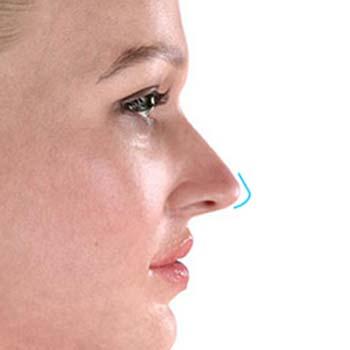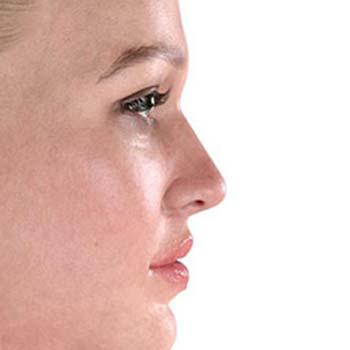Discover Aesthetic Solutions
Learn about and compare a wide range of options to make an informed choice about your body
Pointy Nose: Every Surgical and Non-Surgical Solution
To determine the appropriateness of different solutions for addressing concerns related to a pointy nose, it is crucial to evaluate their typical effectiveness and compatibility. Tailor your exploration according to your budget, preferred treatment type, expected duration, and potential side effects to uncover solutions that cater to your unique requirements. Set out on the path to refine your ethnic nasal features with our expert guidance and personalized options, ensuring an informed and aesthetically pleasing result. Customize your experience with a comprehensive approach that celebrates and enhances the unique aspects of your ethnic identity.
2 Solutions
Filters
Most Popular Solutions
- Most Popular Solutions
- Most Providers
- Most Active Discussions


Rhinoplasty
75% Positive Experience
64% Experts Recommendation
69.5% Belo Factor
The most common procedure for a pointy nose. Match Percentage: 85%. Rhinoplasty surgically alters the structure of the nose to reduce or reshape a pointy tip, providing a more balanced appearance.
B & A photos





Nose Filler
64% Positive Experience
75% Experts Recommendation
69.5% Belo Factor
The Second most common pointy nose treatment method. A non-surgical option uses injectable fillers to subtly reshape the nose, softening a pointy appearance without surgery, with temporary results.
B & A photos




What is a Pointy Nose?
A pointy nose is distinguished by its pronounced and distinct tip, which often takes on an angular or sharply defined shape. This type of nose varies in its degree of pointiness and overall appearance, making it a unique feature for each individual. While some may find this trait to be an appealing aspect of their facial structure, others might view it as an area for potential aesthetic enhancement. Understanding the specific contours and characteristics of pointy noses is crucial for anyone considering changes, as it helps in setting realistic expectations and goals for any potential treatments.
Disclaimer: "Pointy noses" categorize a physical characteristic, not a health concern. Your comfort with your nose's appearance is what truly matters. If you are pleased with your nose as it is, we honor your preference to maintain its natural state. At Belorens, we are committed to supporting our clients' autonomy and ensuring that any cosmetic decisions are made voluntarily and confidently.
What Causes a Pointy Nose?
A pointy nose results from a unique interplay of genetics and individual nasal anatomy. The structure of nasal cartilage and the underlying bone significantly influences this distinct shape. Recognizing the genetic basis helps in appreciating the natural diversity of nose shapes. This insight is beneficial for those contemplating alterations, as it provides a foundational understanding of their nose's inherent structure. Knowledge about these genetic factors can guide individuals in making informed decisions about possible treatments, ensuring any choice to modify the nose aligns with their personal aesthetic goals and facial harmony.
Am I a Candidate for Pointy Nose Treatment?
If the pointed shape of your nose doesn't align with your aesthetic preferences, you might consider treatment options. Consulting a qualified surgeon is crucial to evaluate your candidacy for potential modifications. This assessment will consider your overall facial structure, the specific characteristics of your nose, and your desired outcome. Understanding your options, including the extent of possible changes and their impact on your facial balance, is key. This initial consultation provides valuable information, helping you decide whether pursuing treatment aligns with your aesthetic goals and expectations.
How Old Should I Be to Get a Pointy Nose Nose Job?
Considering surgical alterations to a pointy nose requires waiting until facial growth is complete, usually in the late teens or early twenties. This timing ensures that any changes made are well-suited to your fully developed facial structure and are more likely to produce stable, long-lasting results. It also allows you to make a more informed decision, understanding how the nose fits into your overall facial aesthetics as an adult. This age factor is vital in planning a procedure that aligns with both your physical development and personal readiness. However, non-surgical procedures such as nose fillers do not have an age limit and can be opted for at any point.
Pointy Nose Before and After See it for Yourself!
Before-and-after photos provided by plastic surgeons can offer a visual representation of the potential changes achievable through rhinoplasty for a pointy nose. Explore the extensive collection of an alar retraction case in Belorens' gallery of pointy nose before and after photos to visualize the remarkable outcomes achieved through surgical procedures.
Is There a Pointy Nose Non-Surgical Treatment?
For those seeking a less invasive approach to adjusting a pointy nose, non-surgical options like dermal fillers offer temporary solutions. These treatments can subtly alter the nose's appearance, softening sharp angles or balancing proportions. While not as transformative as surgery, these methods provide a way to experiment with changes before committing to permanent alterations. Understanding the limitations and temporary nature of these methods is important, as they may require ongoing treatments to maintain the desired look.
Is there a Self-Care Pointy Nose Treatment Method?
While significant changes to the shape of a pointy nose typically require professional intervention, maintaining overall facial health is beneficial. This includes skincare routines that promote healthy skin, potentially enhancing your nose's appearance. However, it's important to note that non-surgical self-care techniques have limited capacity to alter the nose's structure. For those considering more pronounced changes, professional consultation is advised to explore the range of available treatment options and to understand what can realistically be achieved.
Are Small Noses in Need of Urgent Treatment?
Pointy noses are usually not a medical concern and do not require urgent treatment. The decision to alter the shape of your nose is often driven by personal aesthetics or discomfort with its appearance. If there are functional issues or significant distress, seeking professional advice is recommended. Understanding that cosmetic alterations are elective allows you to take the time to consider your options, ensuring that any decision to proceed with treatment is made thoughtfully and aligns with your personal and aesthetic goals.
Can I Delay Pointy Nose Treatment?
Undergoing treatment for a pointy nose is a personal decision, and there's no set timeline for when it should be done. If you're contemplating rhinoplasty or other procedures, consider your readiness and personal circumstances. Taking time to understand your motivations, the potential impact on your appearance, and how the change aligns with your self-image is important. Delaying the procedure until you feel confident and prepared can lead to a more satisfying and positive outcome, ensuring the decision is in your best interest.
Are Pointy Noses Socially Acceptable?
Pointy noses, like any unique facial feature, are a part of diverse beauty standards and are generally accepted in society. The decision to alter a pointy nose should be based on personal preference rather than societal expectations. Embracing your natural appearance can foster self-confidence, while choosing to alter it should be for personal reasons. Understanding that beauty is subjective and varies across cultures can help in making a decision that truly reflects your desires and enhances your individuality.
How Much Does Pointy Nose Removal Cost?
The cost of a nose job for pointy nose procedures can vary based on factors such as the surgeon's expertise, geographic location, and the extent of the procedure. Presented below is a comparison chart detailing the average nose treatment cost associated with commonly used methods for correcting a pointy nose in the United States, juxtaposed with the services provided by esteemed surgeons affiliated with Belorens in Turkey.
| Treatment | Average Price Range in The US | Average Price Range in Turkey |
|---|---|---|
| Pointy Nose Rhinoplasty | $5000-$15000 | $2000-$6000 |
| Revision Rhinoplasty | $7000-$20000 | $2500-$8000 |
| DermalFiller (NoseFiller) | $500–$2000 | $200-$800 |
Pointy Nose Treatment Methods: Which One is More Popular?
When it comes to treating a pointy nose, the choice between surgical and non-surgical methods depends on individual preferences and specific aesthetic goals. Surgical rhinoplasty offers a permanent alteration, reshaping the nose for a more harmonized facial appearance. On the other hand, non-surgical treatments like fillers provide temporary adjustments, allowing for subtle refinements. Understanding the implications, recovery time, and longevity of each method is crucial. This knowledge assists in choosing a treatment that aligns with your lifestyle, expectations, and budget.
Pointy Nose Treatment with Belorens: What Lies Ahead
Before pursuing cosmetic procedures for a pointy nose, thorough research is essential to find options that match your personal needs, budgetary constraints, and aesthetic goals. Being informed enhances your ability to have meaningful discussions with medical professionals. Engaging with a community to share experiences and gain insight from others who have made similar choices can also be invaluable. Belorens is committed to providing you with comprehensive information and helping you make a well-informed decision about your nose treatment options. This approach ensures that any choice made is based on a clear understanding of the possibilities and outcomes.
Frequently Asked Questions (FAQ)
Can Pointy Nose Procedures Affect My Sense of Smell?
Typically, rhinoplasty, which is often used to alter a pointy nose, focuses on the nose's external structure and is unlikely to affect your sense of smell. However, it's important to communicate any concerns with your surgeon beforehand. Temporary changes in smell perception can occur due to swelling but usually resolve as you heal.
Can I Choose the Degree of Nose Pointiness in Treatment?
Yes, the degree of pointiness can be customized during surgical solutions. However, this is applied to a lesser degree in nose fillers. During your consultation, you can discuss the specific look you're aiming for with your expert. They will work with you to create a plan that aligns with your aesthetic goals while ensuring natural and harmonious results with your facial features.
How Long Does the Swelling Last After Pointy Nose Treatment?
Post-surgical swelling is common and can vary in duration. The majority of the swelling often reduces significantly within the first few months. However, it can take up to a year or more for all swelling to subside completely and for the final results of the surgery to be fully visible. Non-invasive methods like fillers have little to no swelling.
Will I Experience Pain During Pointy Nose Treatments?
During the surgical procedure, you will be under anesthesia, so you should not feel any pain. After surgery, some discomfort is normal, but it can be managed effectively with prescribed pain medication. Once again, non-surgical methods have very little pain and complications associated with them.
Can I Wear Glasses After Pointy Nose Procedures?
After surgery, it's advised to avoid pressure on the nose, which includes wearing glasses. This restriction typically lasts for a few weeks. It's important to follow your surgeon's specific instructions regarding glasses to ensure proper healing. On the other hand, you can wear glasses immediately after a non-surgical procedure.
Is Pointy Nose Treatment Covered by Insurance?
Cosmetic pointy nose jobs are generally not covered by insurance. However, if part of the surgery addresses functional issues, like breathing difficulties, it may be partially covered. It's essential to check with your insurance provider for specific coverage details.
Can I Exercise After Pointy Nose Treatments?
Strenuous physical activity should be avoided for a specified period after surgery, usually a few weeks, to prevent any complications. Your surgeon will advise when it's safe to resume different types of exercise, starting with light activities. This is not the case for non-surgical treatment, and you can immediately go to your athletic routine.
How Permanent Are the Results of Pointy Nose Procedures?
The results of pointy nose surgery are designed to be long-lasting. While the nose may undergo slight changes over the years due to aging, the alterations made during the procedure are generally permanent. Non-surgical treatments like fillers have temporary results but are cheaper.